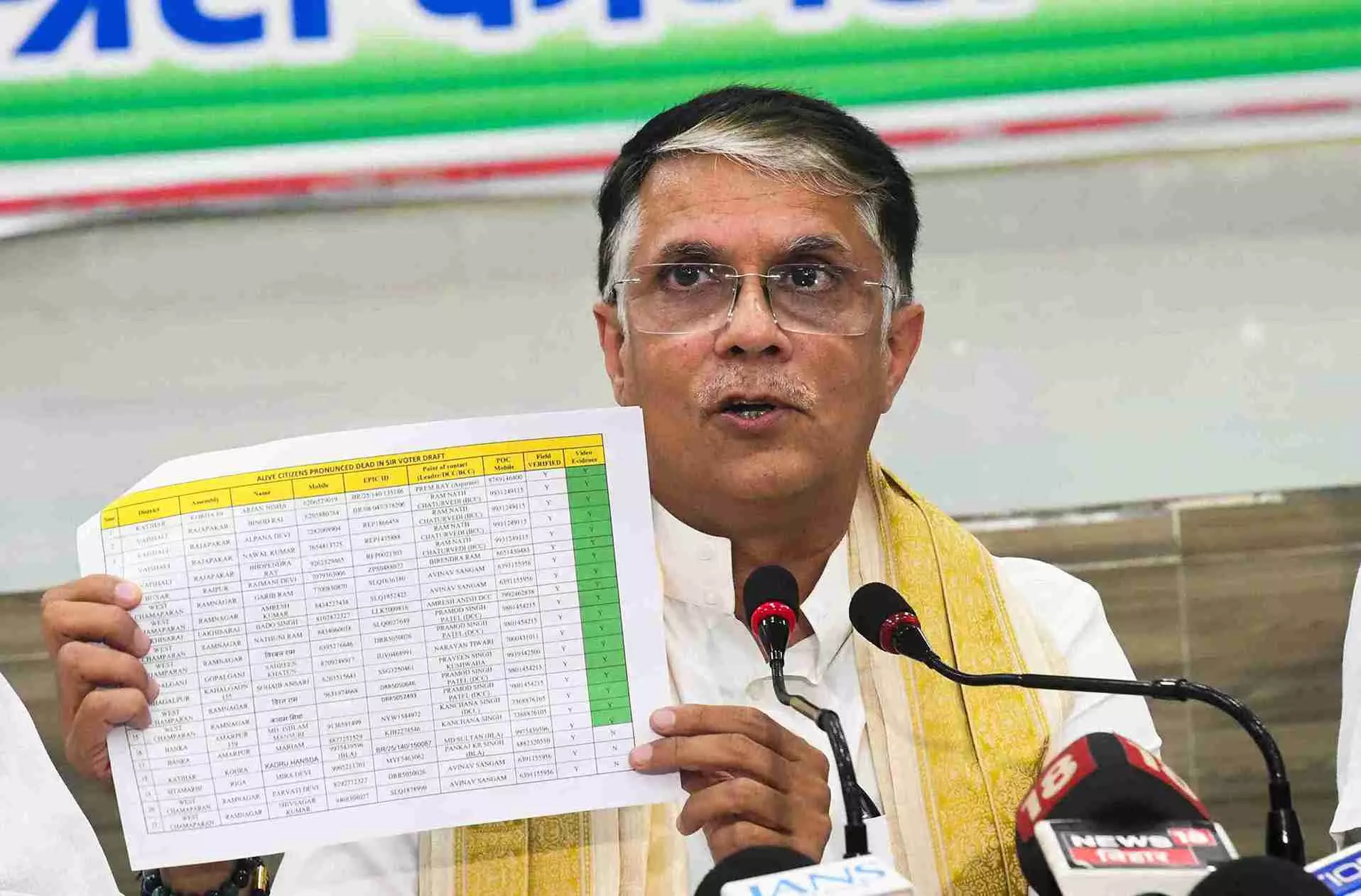
Congress counters EC’s ‘no objection’ claim, says it lodged 89 lakh complaints on SIR
Party claims its district committee presidents have got signed and stamped receipts of those complaints from district electoral officers

The Congress has countered the Election Commission’s claim that the party has not filed any objection to date against the Special Intensive Revision (SIR) in Bihar, saying it has lodged a staggering 89 lakh complaints.
The main Opposition party, which is currently leading a campaign against alleged “vote theft” in the poll-bound state, claimed on Sunday (August 31) that its district committee presidents have got signed and stamped receipts of those complaints from district electoral officers.
“The Congress does not want any illegal voter on the electoral rolls, but at the same time, it does not want any rightful voter to be removed from the list either,” Pawan Khera, the Congress’s publicity and media wing chairman, said at a presser in Patna on Sunday. Khera was accompanied by the party’s Bihar chief Rajesh Ram and other leaders.
Also read: SC on Bihar SIR: Confusion 'largely trust issue', political parties should 'activate' themselves
Is EC violating SC orders?
Khera alleged that the EC has been refusing to accept complaints and objections from Booth Level Agents (BLAs) on the grounds that these should be filed by aggrieved individuals and not BLAs of political parties.
But the Supreme Court, which has been hearing a bunch of petitions challenging the SIR, has specifically said BLAs must be roped in to assist aggrieved voters excluded from the draft rolls to file their claims, objections, and complaints wherever necessary.
Also read: As Rahul’s Voter Adhikar Yatra approaches climax, the real test begins now
‘Intriguing patterns’ in SIR
Khera said the EC has broadly cited four reasons for the deletion of names from the voter list — migration, death, unavailable at the address, and double registration.
“While the names of 25 lakh voters were deleted on the pretext of migration, 22 lakh voters were said to be dead, 9.7 lakh voters were marked as ‘not found at their given addresses’, and seven lakh names were deleted on the claim that they were registered elsewhere too,” the Congress leader said.
Khera said some “intriguing patterns” have been noticed in the SIR. In 20,638 booths, more than 100 names have been deleted. “In 1,988 booths, more than 200 names have been deleted. In 7,613 booths, 70 per cent of the deleted names were those of women voters. In 635 booths, over 75 per cent of the voters deleted under the migrant category were women,” he said.
“This sounds strange, as it is typically men who migrate for work more than the women,” he said.
On the EC’s “dead voters” claim, Khera said in 7,931 booths, 75 per cent of voters had been removed as they were said to be dead.
Also read: Bihar SIR: Is EC using ‘citizenship doubts’ to disenfranchise 3 lakh voters? | Capital Beat
EC's claim
The Congress’s reaction comes after the EC claimed that to date, no BLA authorised by any district Congress president in Bihar has submitted any claim (Form 6) or objection (Form 7) for anyone in the draft electoral rolls published on August 1 in the prescribed format so far.
“These are explicitly intended for public scrutiny, inviting claims and objections from electors, political parties, and all other stakeholders,” the office of the Chief Electoral Officer said.
It said that figure of 67,826 “dubious duplicates” stated in some sections of the media is in accordance with data mining and subjective matching of name/relative/age combinations, adding that “these parameters, without documentary and field verification, cannot conclusively prove duplication”.
In Bihar, especially rural constituencies, it is common for multiple individuals to share identical names, parental names, and even similar ages. The Supreme Court has recognised such demographic similarities as insufficient proof of duplication without a field inquiry.

